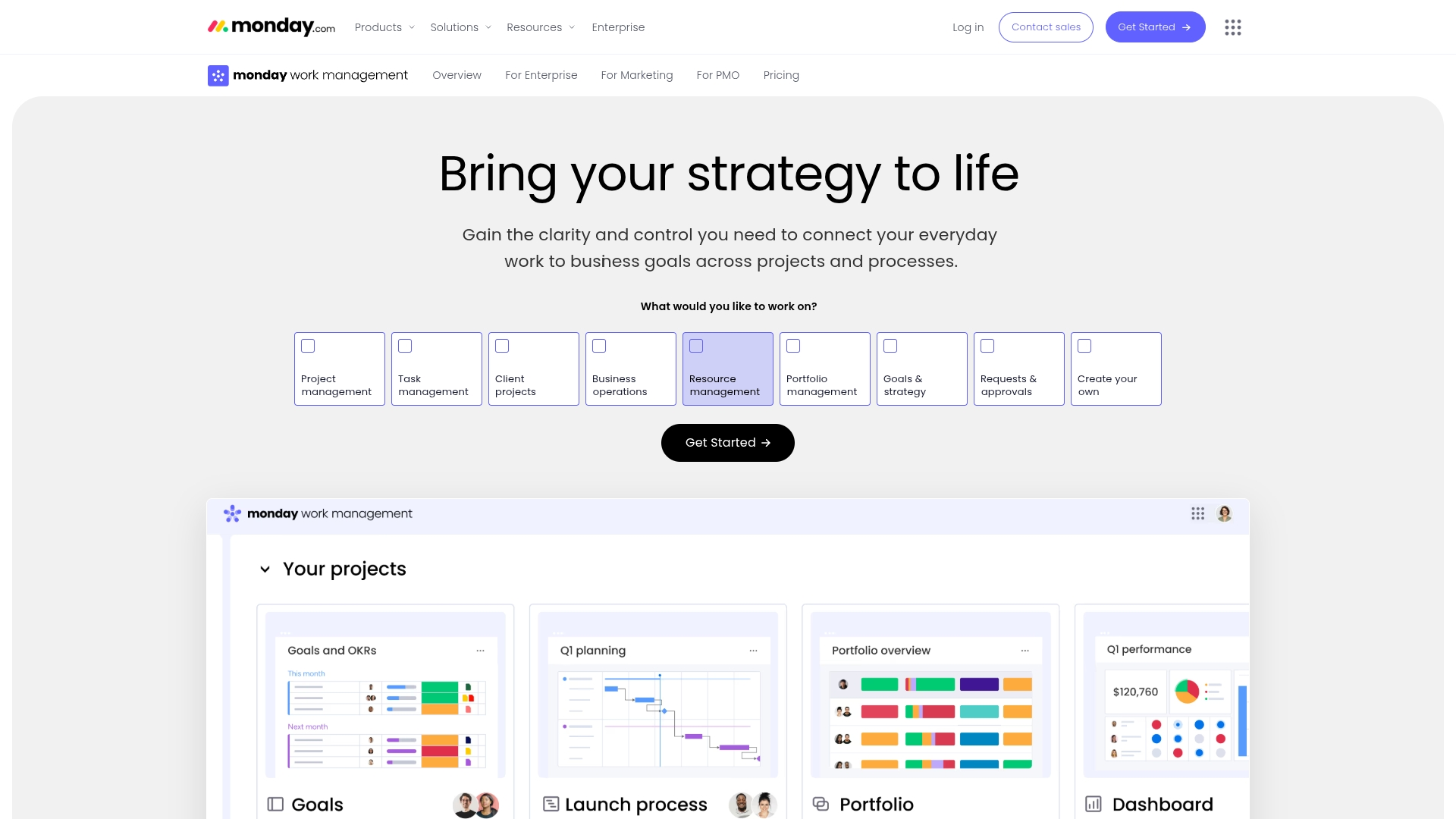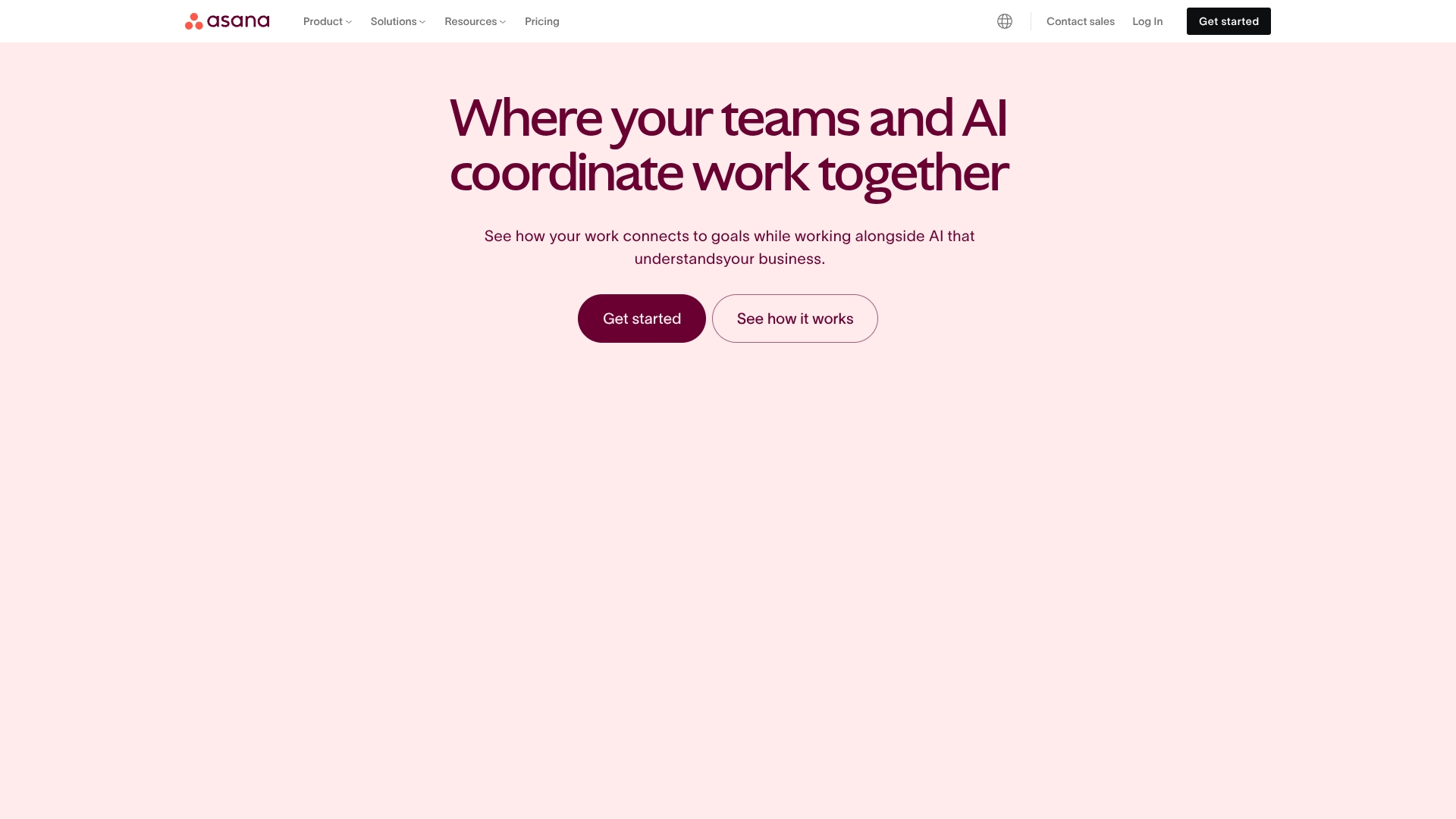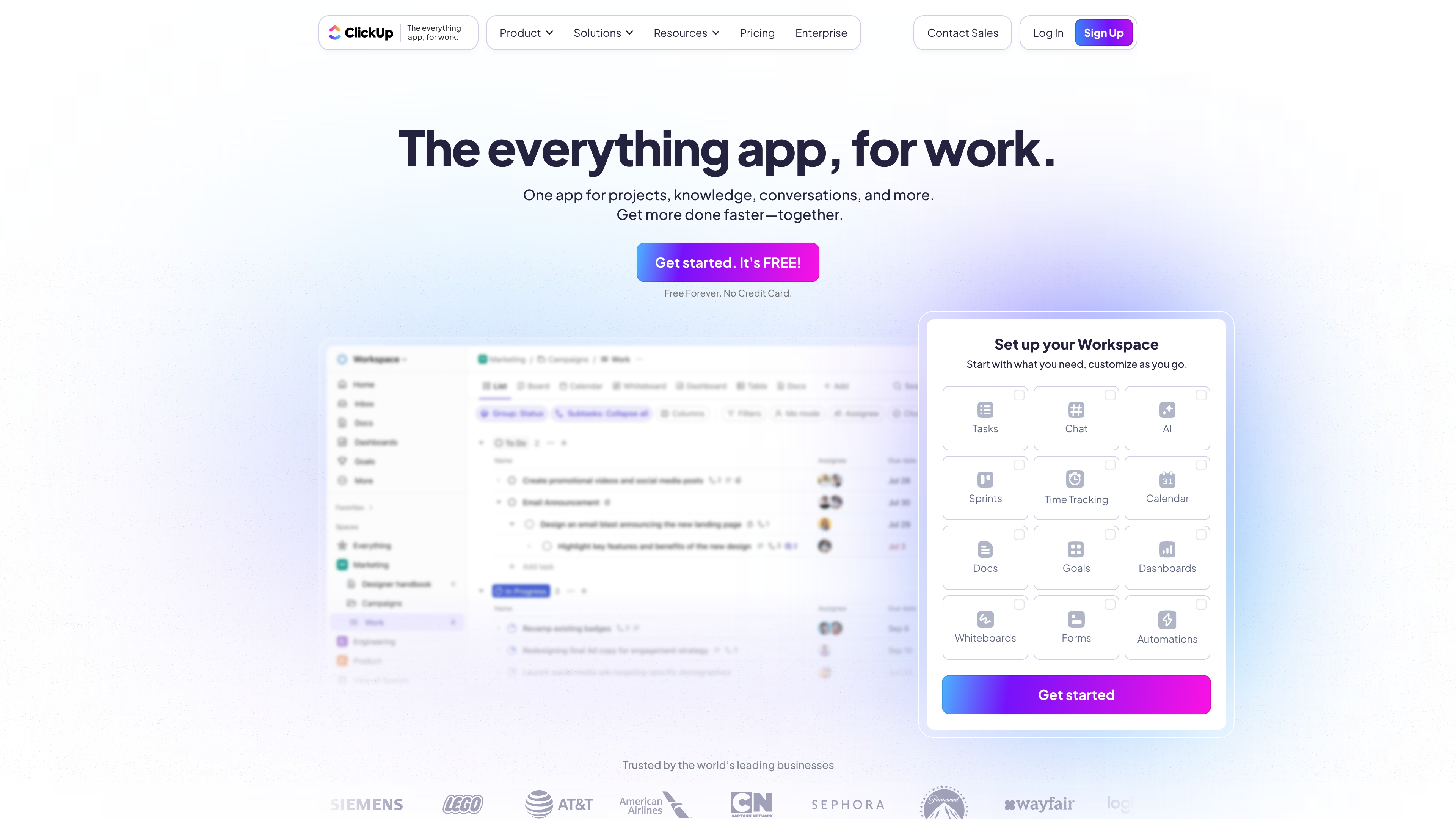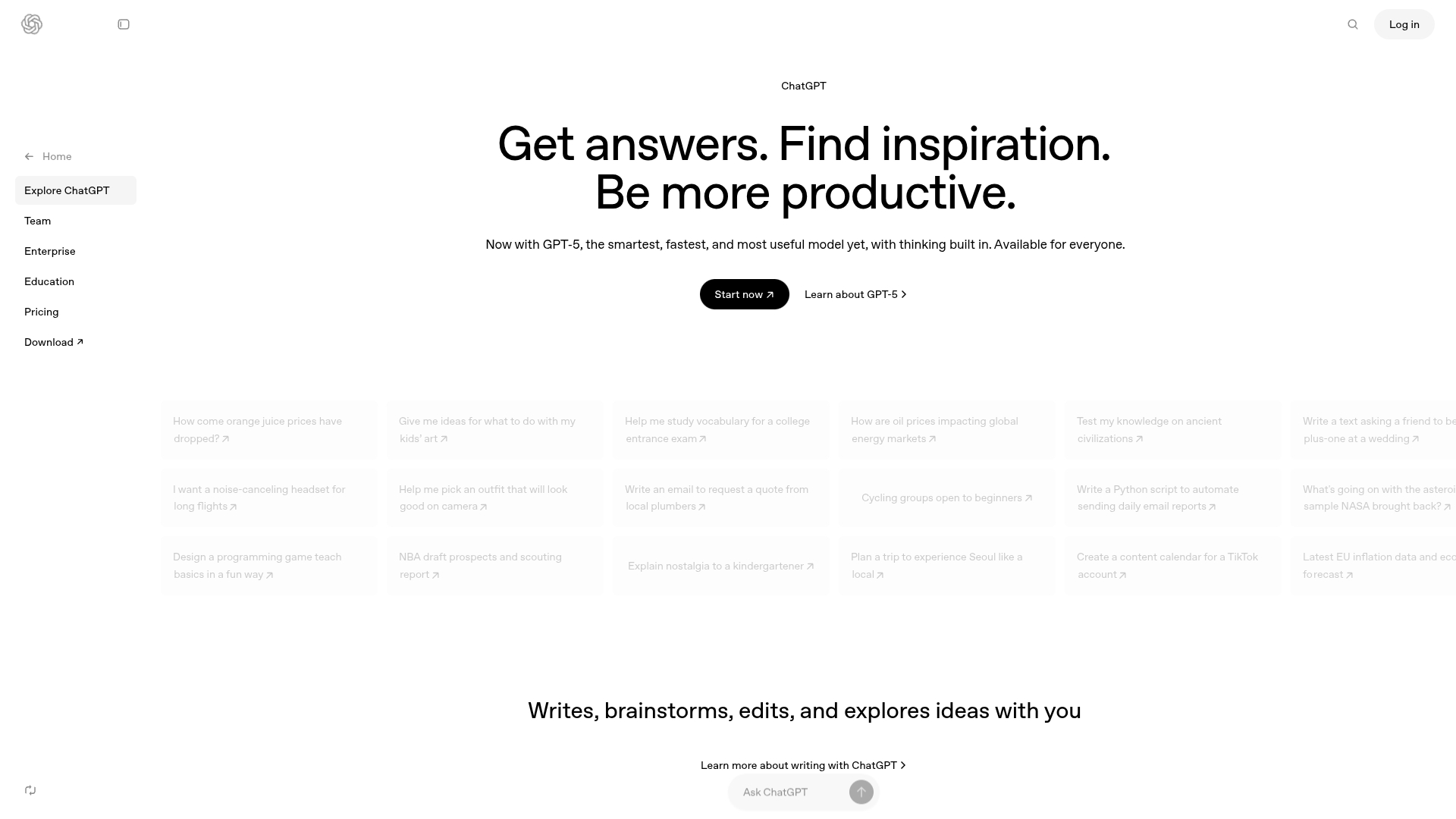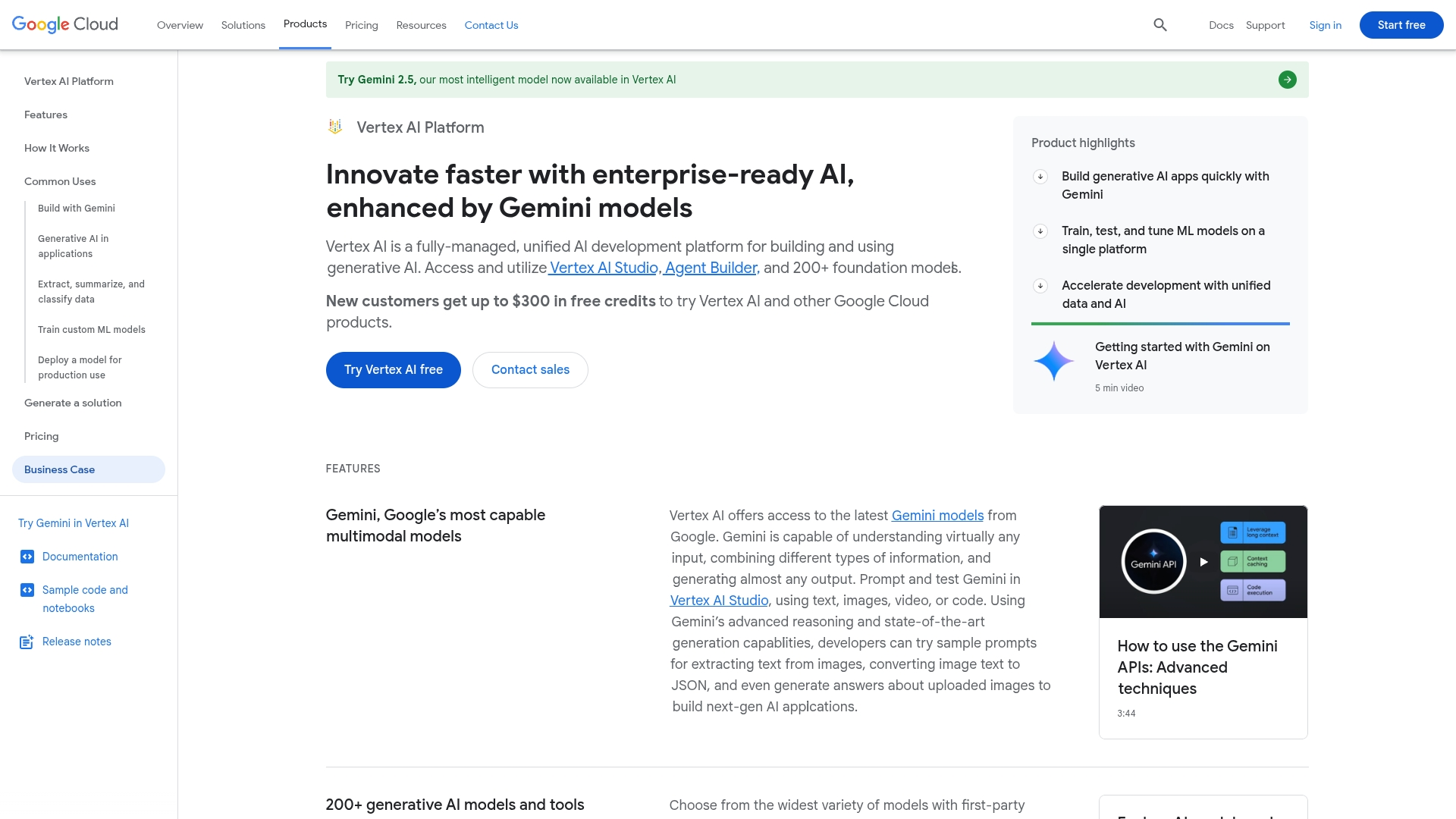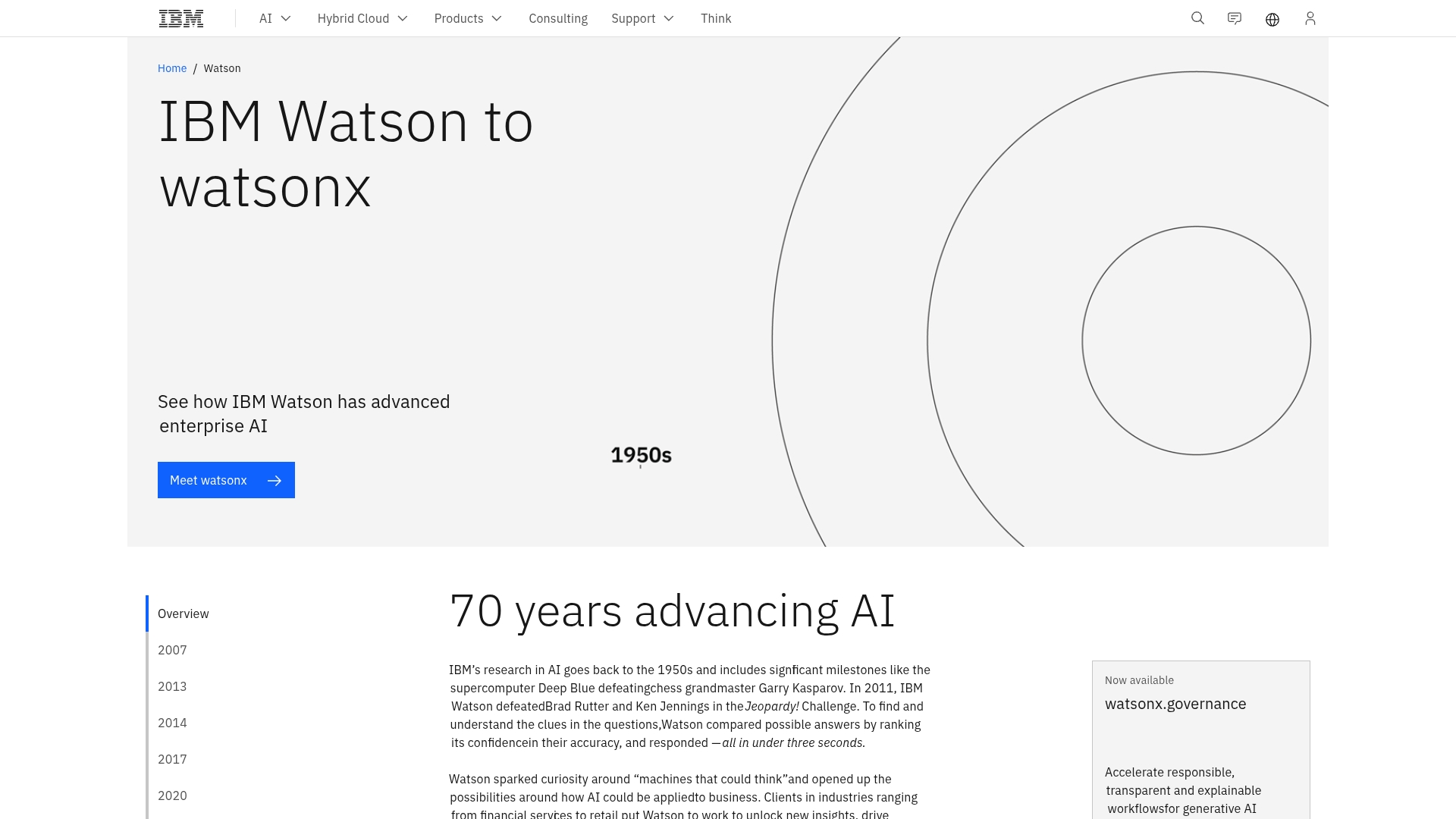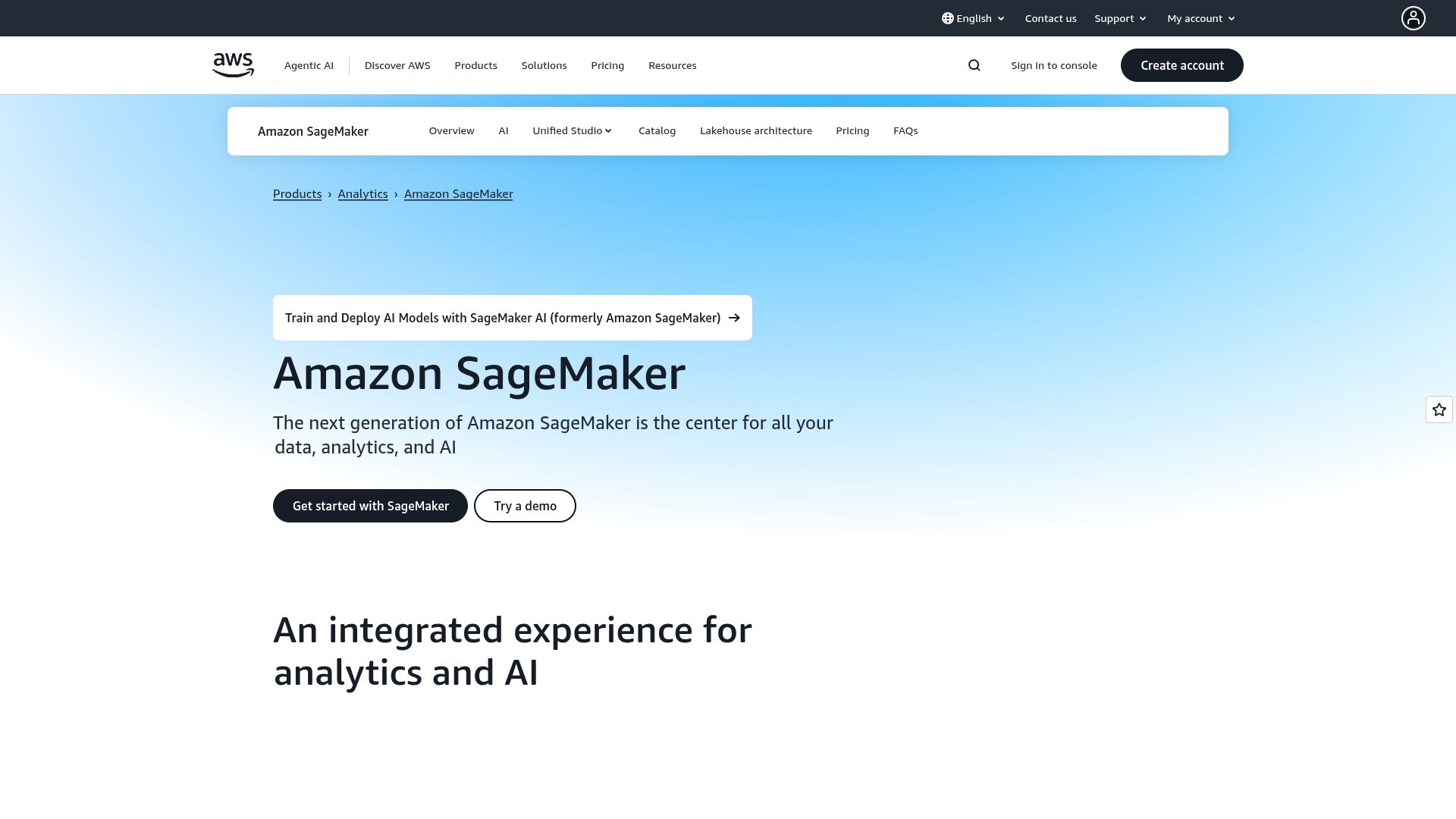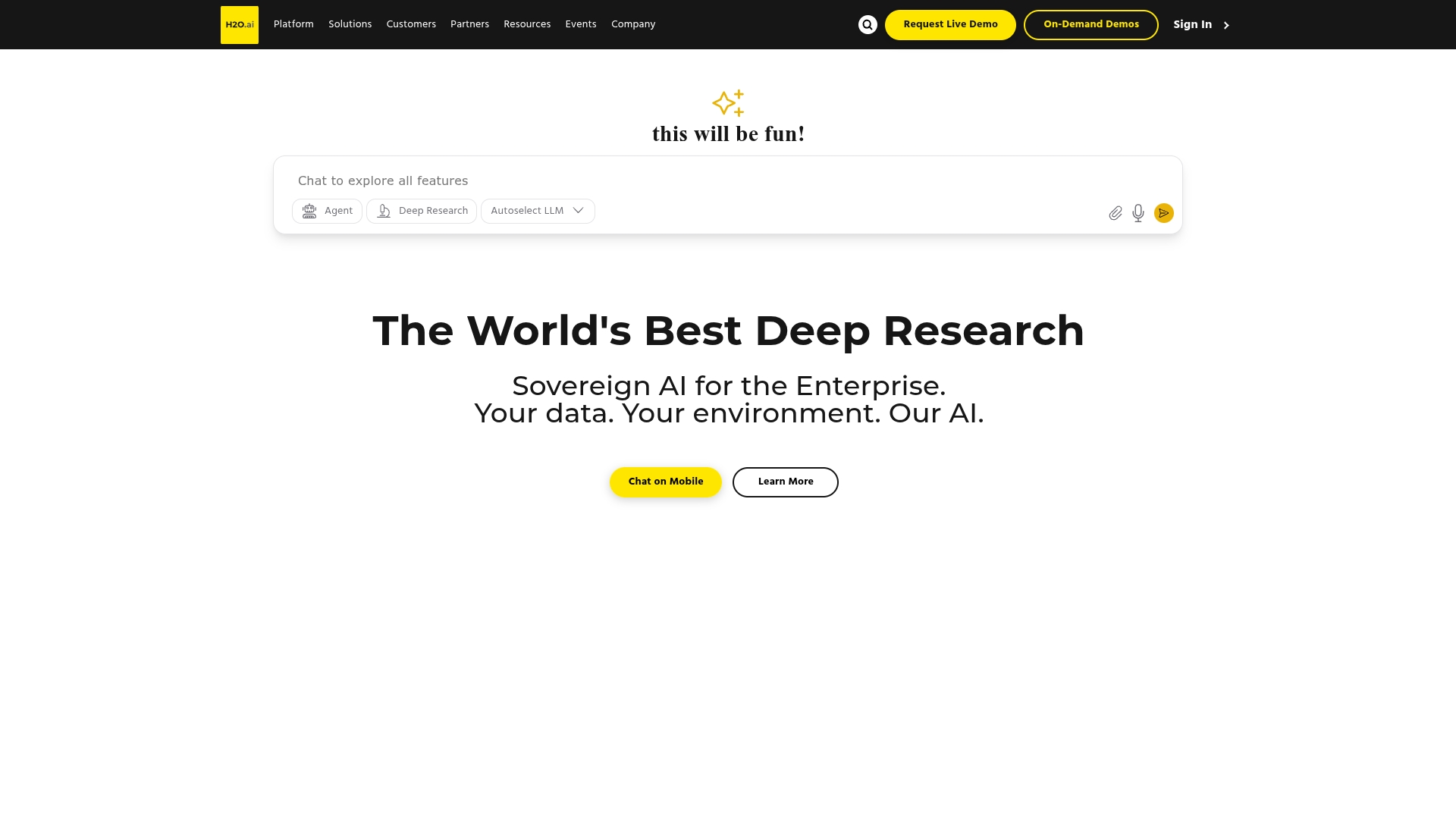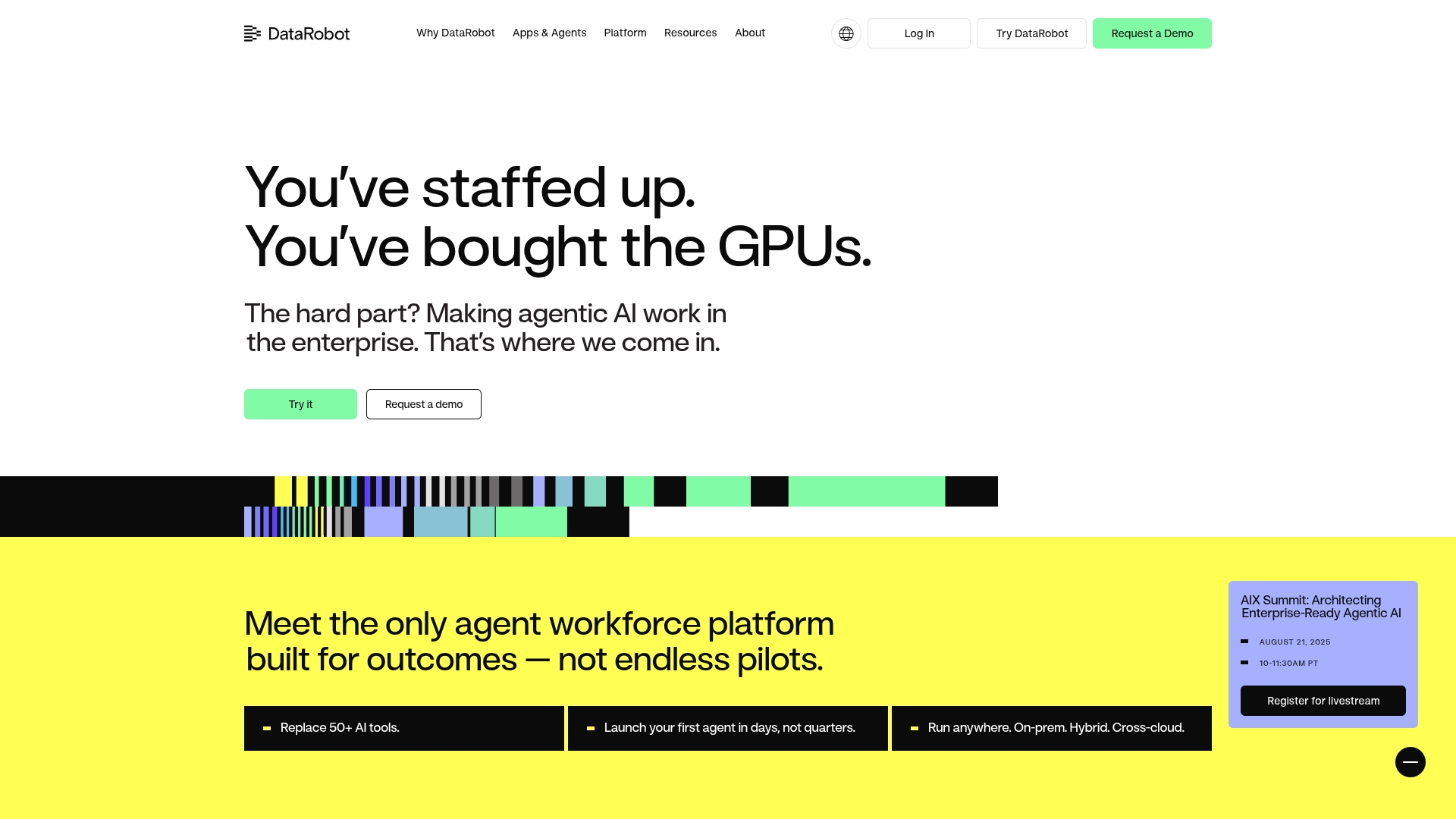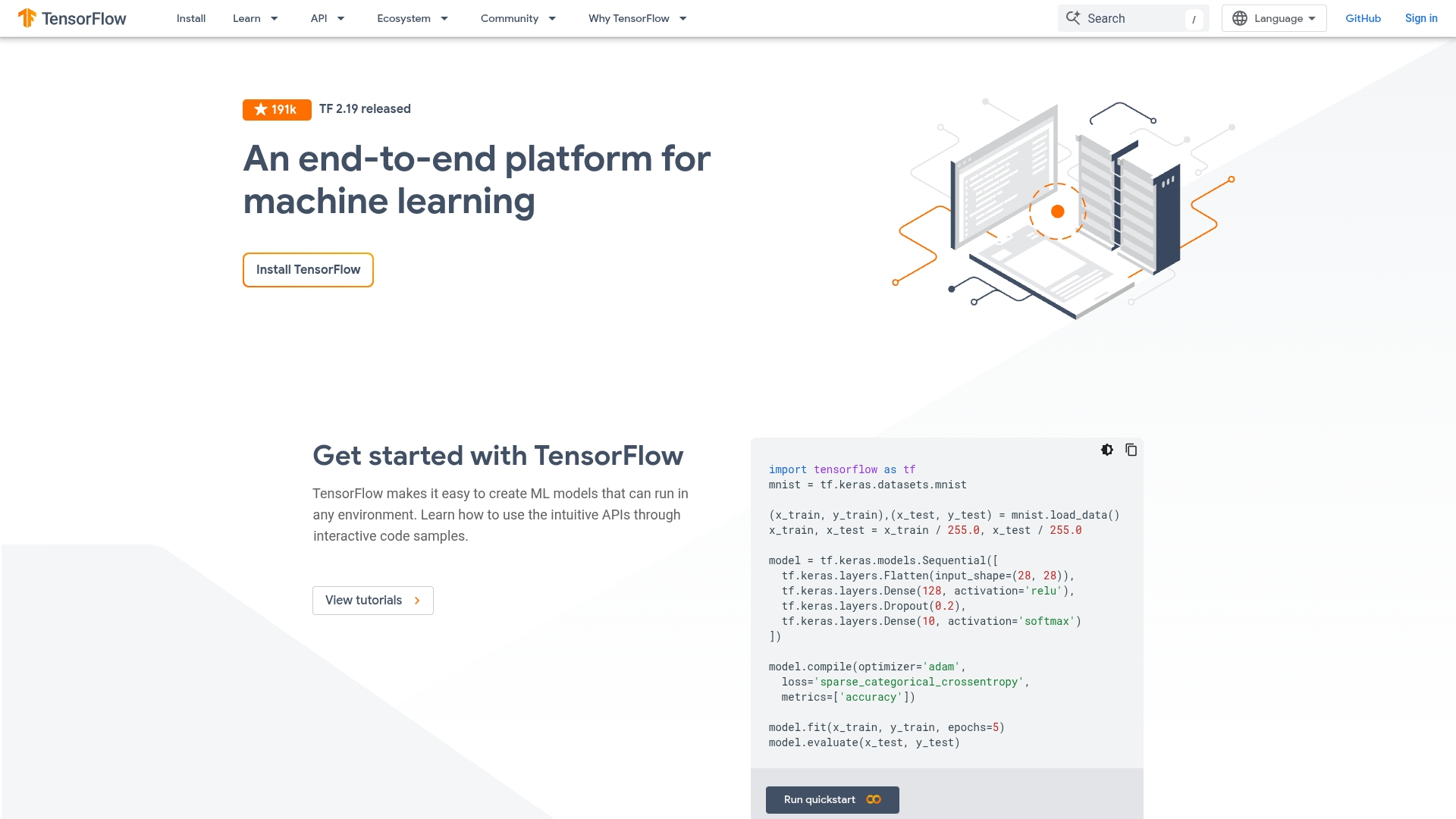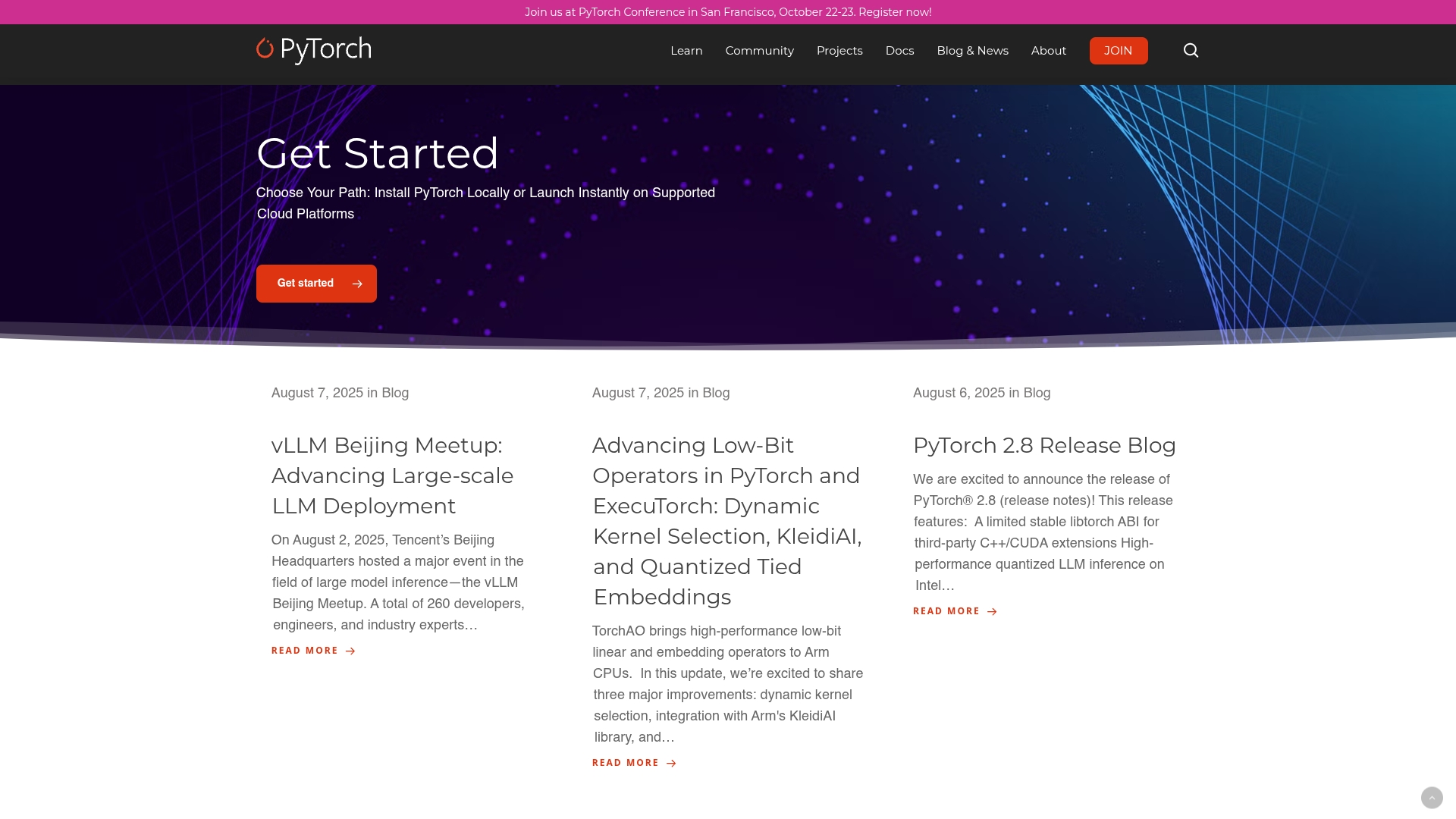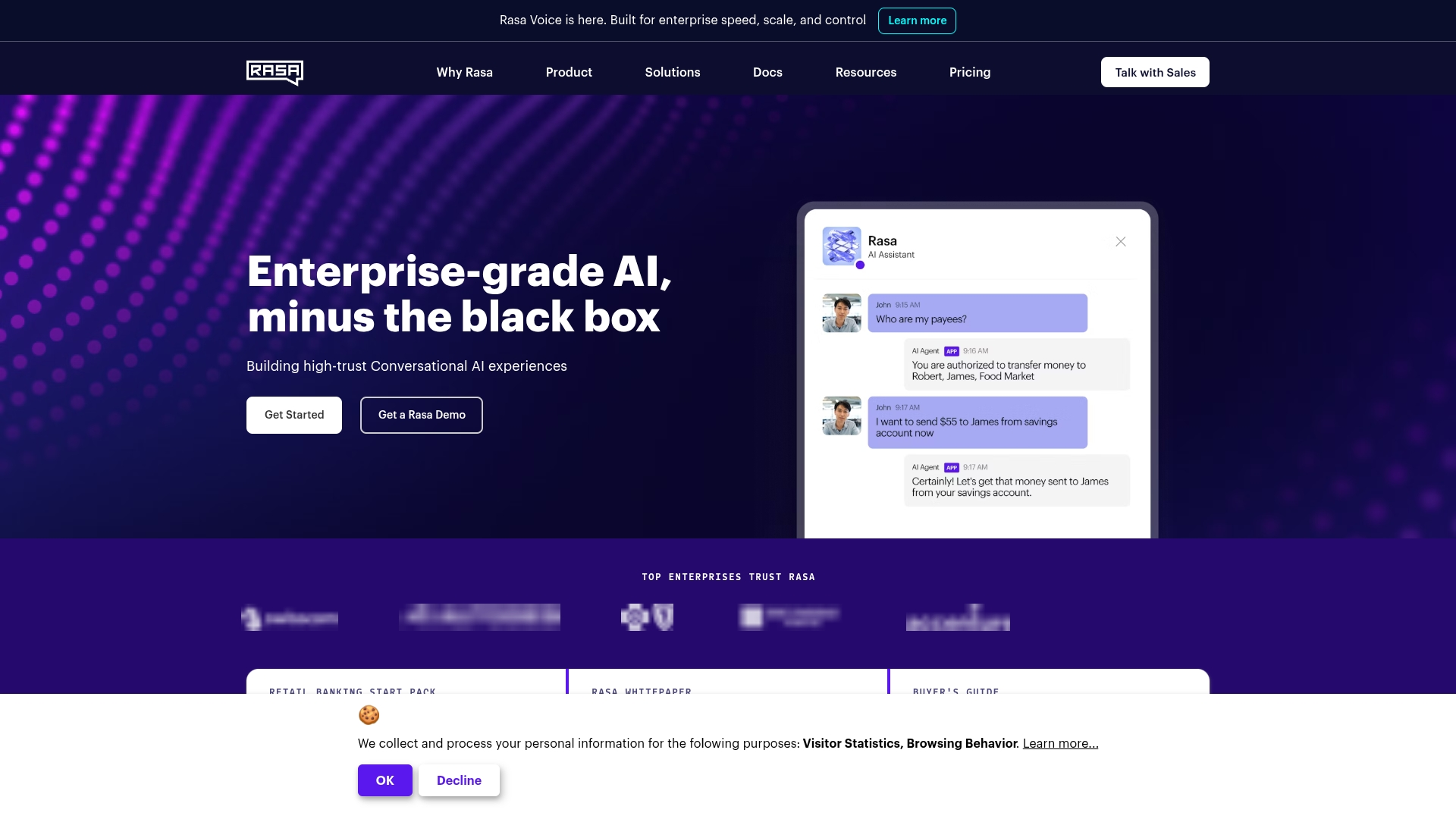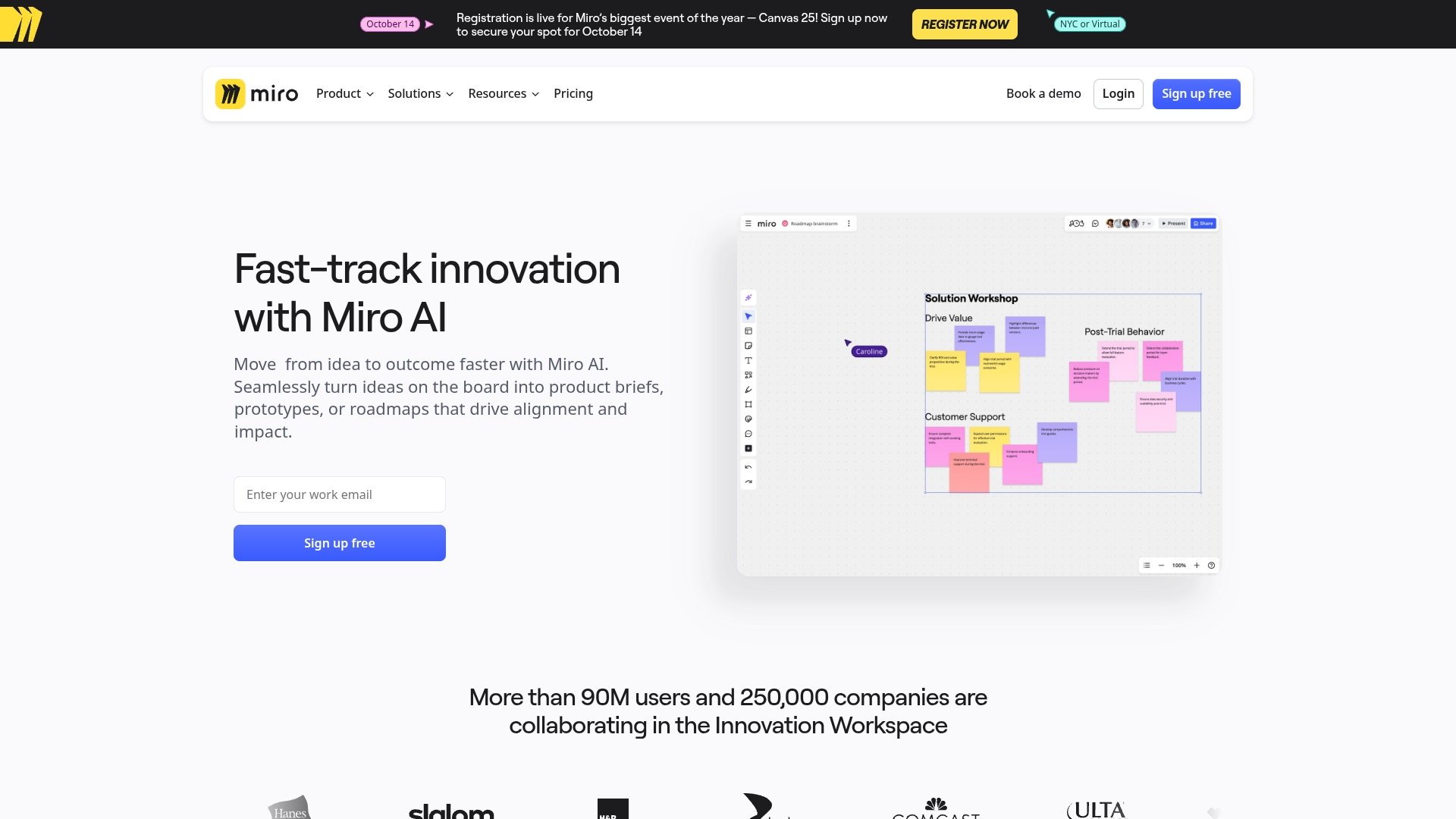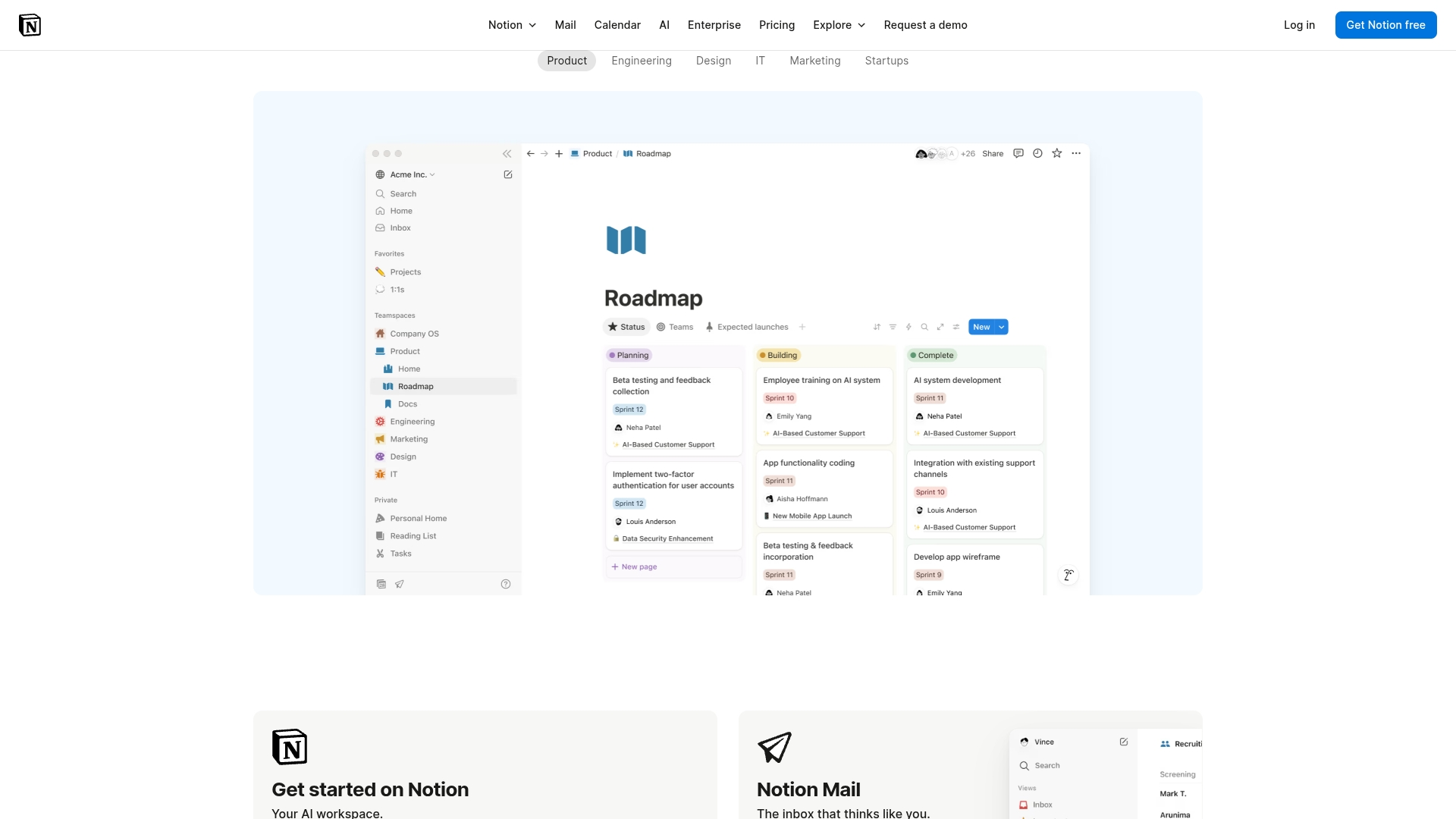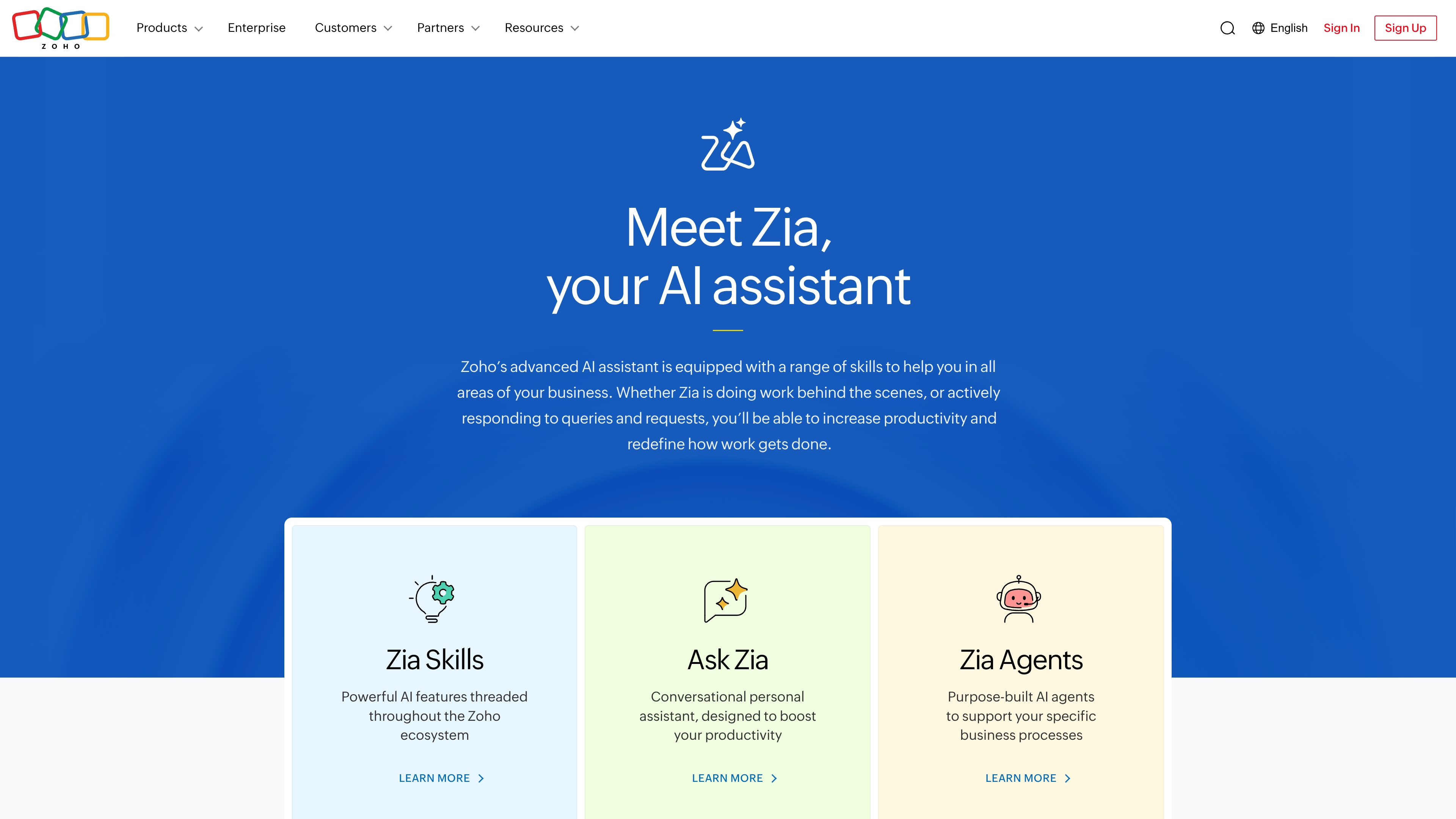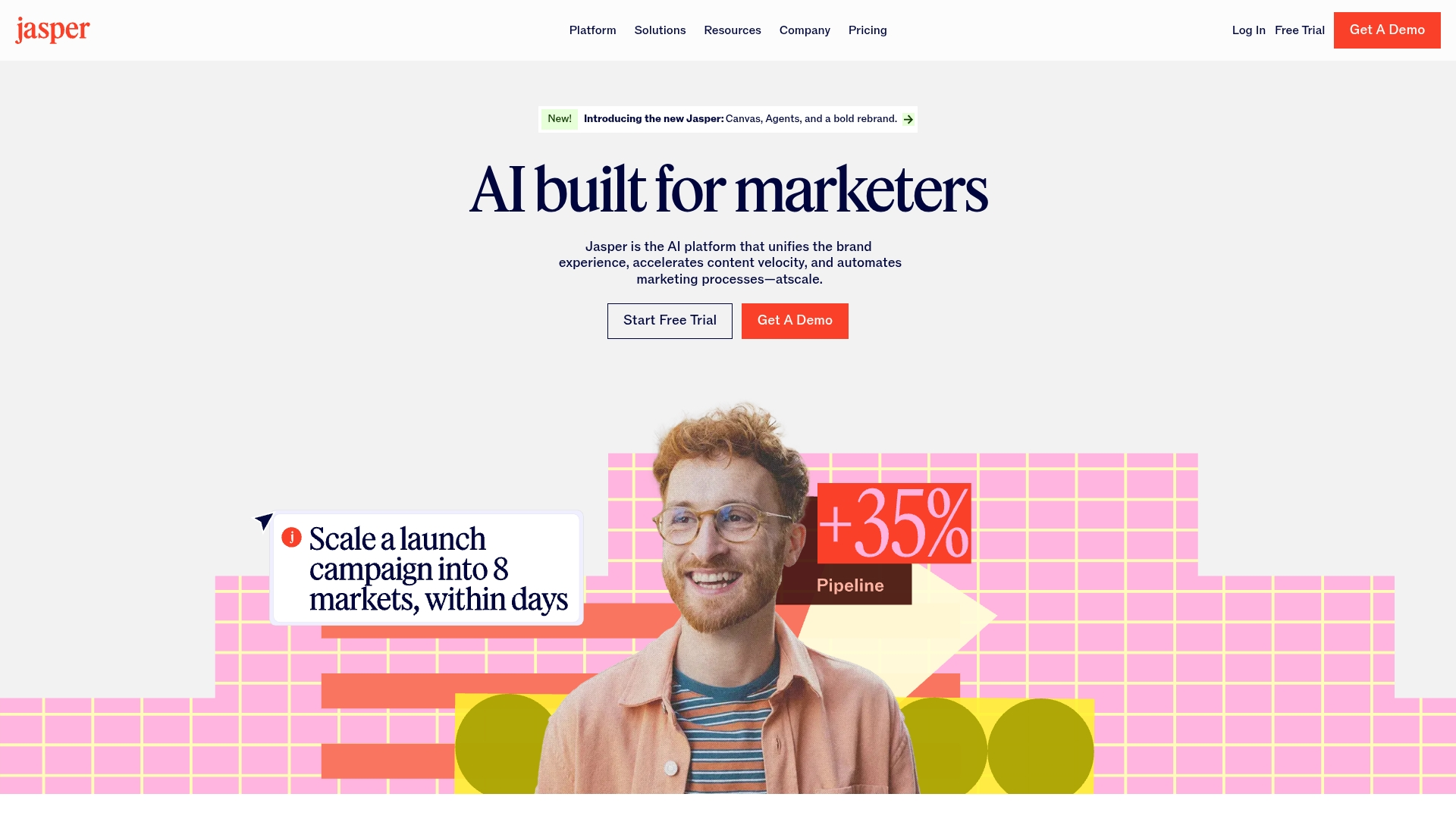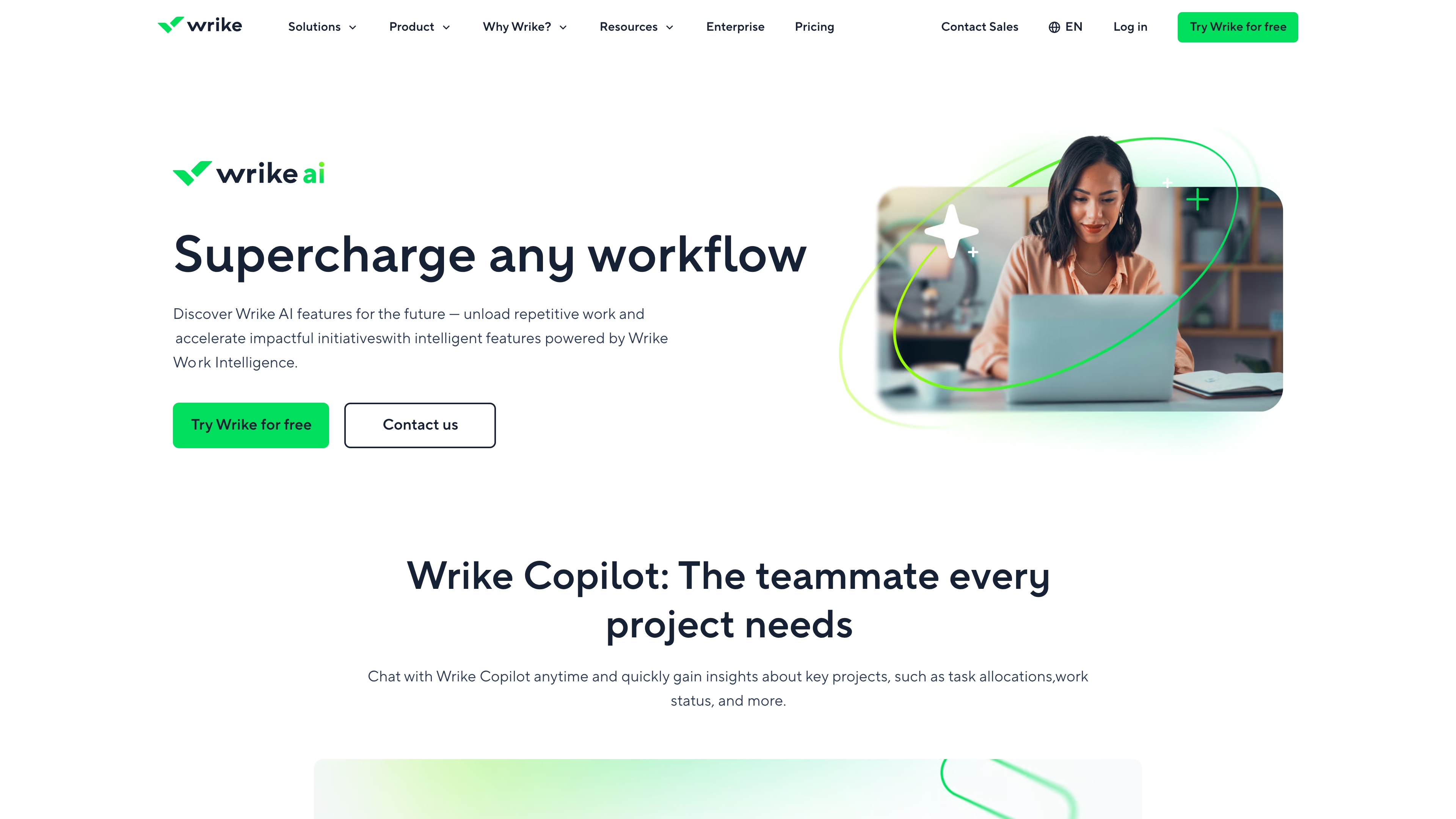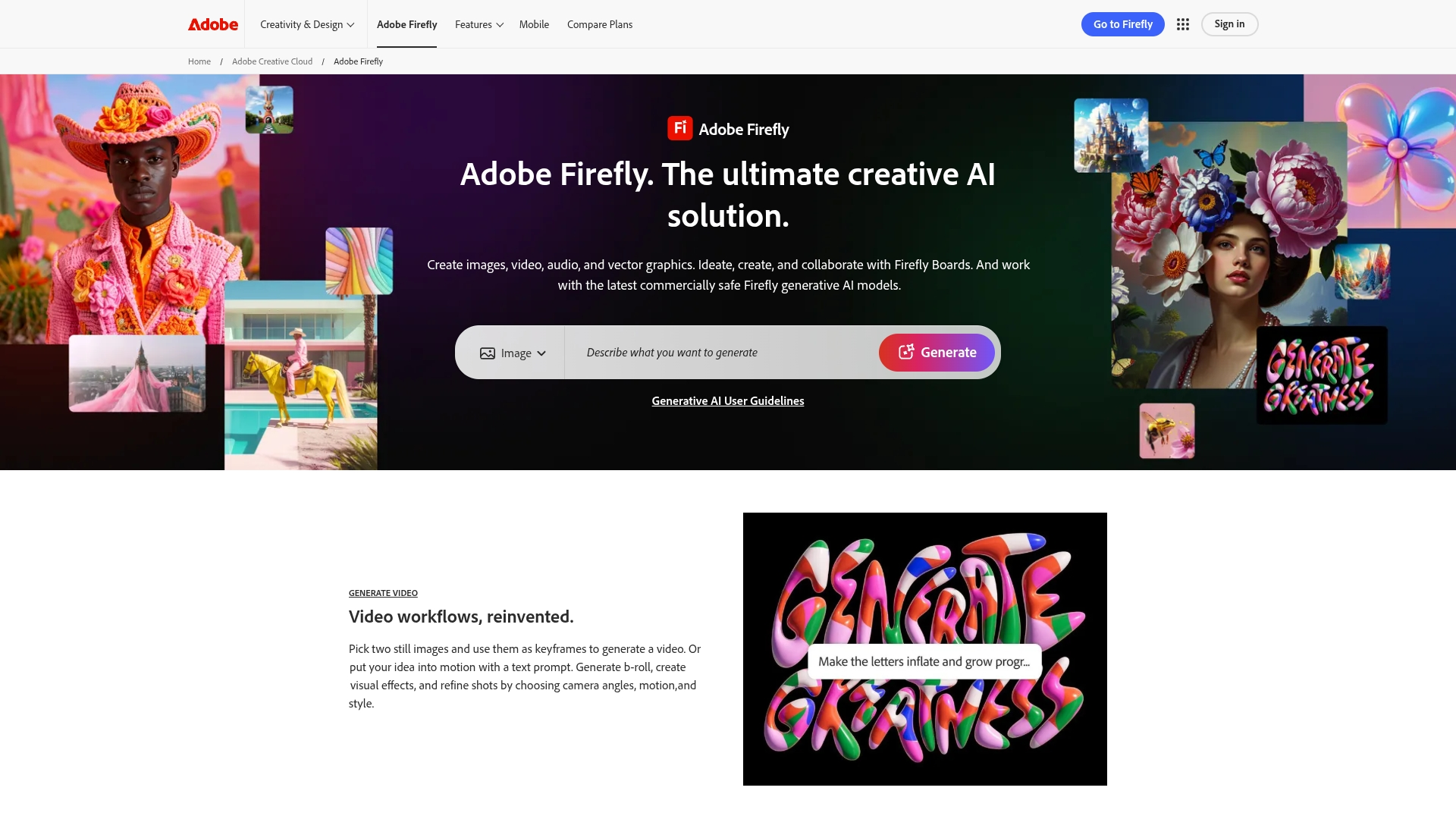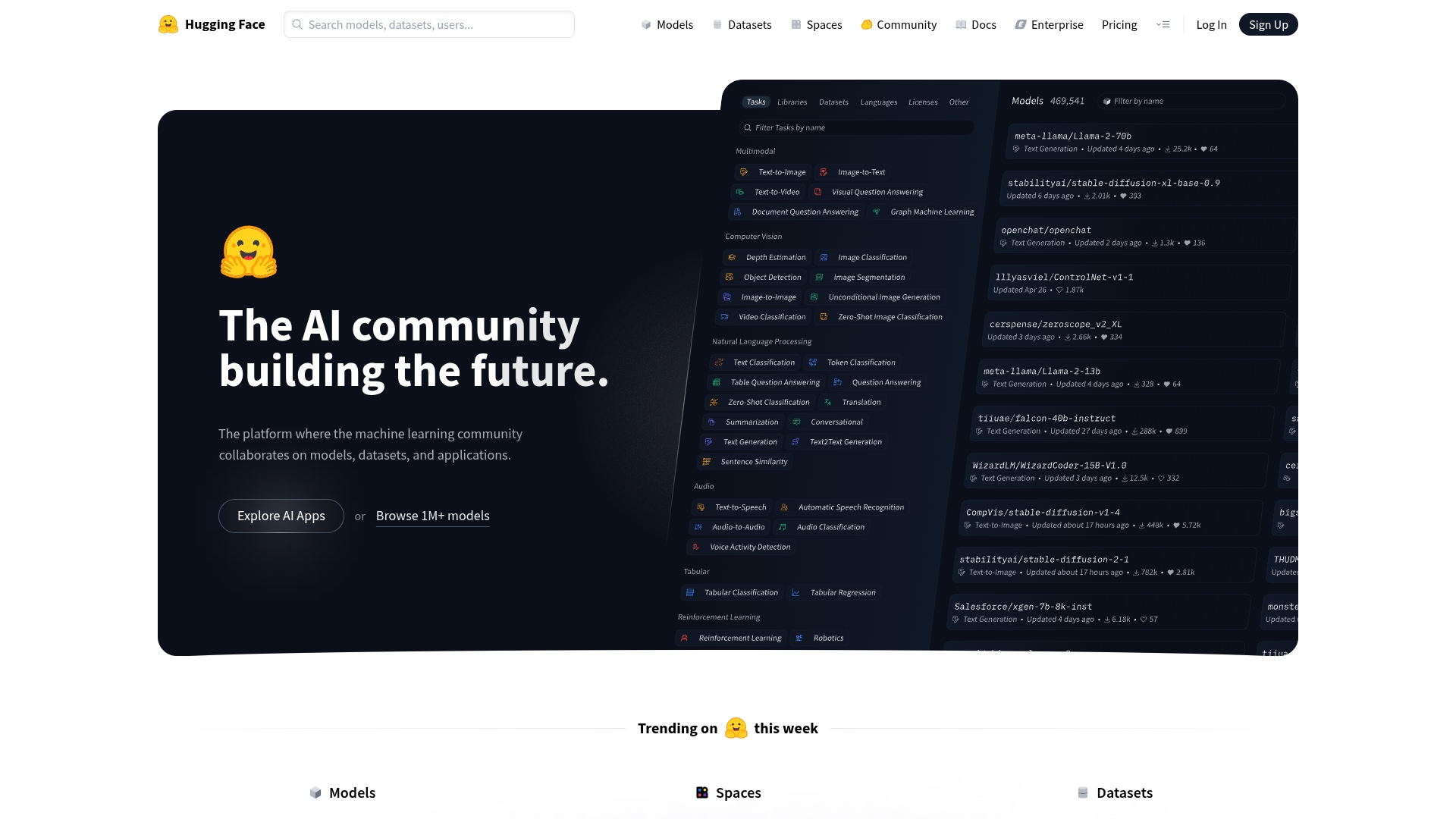Thanks to digital transformation, the market for AI platforms is growing fast, but finding the right one for your team can feel overwhelming. The best solutions cut through the noise by integrating directly into your daily work, automating routine processes, and providing insights that help you make smarter decisions.
This guide walks through the top AI solutions designed for modern teams, including monday work management. We’ll cover everything from project management software assistants to powerful development frameworks. You will also learn how to choose the right platform, what makes an integration truly useful, and how scenario planning can ensure your team succeeds with AI.
Try monday work managementWhat are AI platforms and why do teams use them?
Think of an AI platform as a launchpad that lets your team use artificial intelligence without needing deep technical know-how. These platforms bundle powerful tools and pre-built models into a user-friendly environment. They act as the bridge between complex AI technology and the practical solutions your team needs to excel, often functioning like low-code platforms to empower rapid development.
Leading teams use these platforms to clear away the noise and focus on what matters. They automate the repetitive tasks that slow everyone down through robust automation software, turning massive amounts of data into clear, actionable insights for better decision-making. This shift creates space for the strategic, creative work that drives real growth.
The contrast with traditional software is clear. While older platforms depend on manual tracking, AI-powered ones can automatically prioritize tasks and surface key information. For example, monday work management AI integration streamlines workflows, giving teams a powerful boost without adding unnecessary complexity.
Top 20 AI solutions for modern teams
AI has officially become a trusted teammate for today’s teams. Today’s leading AI platforms handle everything from automating manual tasks to surfacing actionable insights, working like advanced team collaboration software that gives your team a real advantage.
To help you quickly size up the top options, we’ve put together a side-by-side comparison chart covering each platform’s strengths, best use cases, and key AI features. This quick overview is your launchpad: check out the essentials at a glance, then keep scrolling to dive deeper into the details of each solution.
| Platform | Use case | Free plan? | Notable AI features | Starting price |
|---|---|---|---|---|
| monday work management | Unified project & work management | Yes | AI project planning, automations, real-time insights | $9/seat/month |
| Asana | Work management & goal alignment | Yes | Smart Fields, AI workflow automation | $10.99/user/month |
| ClickUp | All-in-one productivity & docs | Yes | ClickUp Brain AI assistant, workflow automation | $7/user/month |
| OpenAI ChatGPT | Conversational AI & content generation | Yes | Natural language chat, code & content drafting | $20/user/month |
| Microsoft Azure AI | Enterprise AI applications | Trial | Prebuilt & custom AI models, integration | Usage-based |
| Google Cloud Vertex | End-to-end ML development | Trial | AutoML, MLOps, Google integrations | Usage-based |
| IBM Watson | Conversational & enterprise AI | Yes (Lite) | Chatbots, document AI, orchestration | Usage-based |
| Amazon SageMaker | ML lifecycle management | Yes (trial) | Automated ML pipelines, integrations | Usage-based |
| H2O.ai | No-code AutoML & explainable AI | Yes (open-source) | AutoML, explainability, cloud-agnostic | Custom (Enterprise) |
| DataRobot | Automated ML & MLOps | Trial | AutoML, model governance | Custom |
| TensorFlow | Custom AI & deep learning | Yes (open-source) | End-to-end pipelines, extensibility | Free (infra costs extra) |
| PyTorch | Flexible AI model development | Yes (open-source) | Dynamic graphs, flexible deployment | Free (infra costs extra) |
| Rasa | Custom chatbots & assistants | Yes | Open-source NLU, self-hosting | $35,000/year (Growth) |
| Miro AI | Visual collaboration & ideation | Yes (with AI credits) | AI clustering, generative content, sidekicks | $8/member/month |
| Notion AI | Knowledge & content management | Yes (trial) | AI writing, content summarization | $10/member/month |
| Zoho AI | Business suite & work management | Yes (limited) | Zia assistant, predictive insights | $14/user/month |
| Jasper | Marketing content generation | Trial | Brand IQ, SEO AI agents | $59/seat/month |
| Wrike AI | Project management & automation | Yes | AI risk prediction, Work Intelligence® | $10/user/month |
| Adobe Firefly | Generative AI for creatives | No | Image/text generation, CC integration | $9.99/month |
| Hugging Face | AI models & open-source hub | Yes | Model library, collaborative Spaces | $9/month (Pro) |
1. Monday work management
Unifying projects, processes, and goals into a single workspace, monday.com’s work management platform is fundamentally changing how teams collaborate. The platform specializes in visual, customizable workflows that make complex work management accessible to teams of all technical levels. With AI-enhanced capabilities and 200+ integrations, it’s designed to scale from small teams to enterprise organizations.
Use case: monday work management connects everyday work to shared business goals across projects and processes, providing a single source of truth for decision-making with real-time insights and automated workflows.
Key features
- AI-powered project planning that instantly creates detailed project plans with suggested tasks and phases
- 15+ customizable views including Gantt charts, Kanban boards, and workload management for flexible project visualization
- Advanced automation builder with 25,000+ monthly automations and integrations to eliminate repetitive tasks
Powerful automations
The platform’s automation builder transforms how teams work by eliminating manual tasks and creating intelligent workflows. Set up custom automation recipes that trigger actions across your entire workspace without writing a single line of code.
- No-code automation builder with drag-and-drop simplicity
- Conditional logic that responds to specific changes in your workflow
- Time-based automations that schedule actions and reminders automatically
200+ integrations
Connect monday work management to your entire tech stack, creating a central hub for all your work. Seamless integrations eliminate context switching and keep information flowing between the tools your team uses daily.
- Native integrations with tools like Slack, Microsoft Teams, and Google Workspace
- Two-way data syncing that keeps everything updated in real time
- Custom API access for building specialized connections to any platform
Advanced AI features
Handling routine tasks and providing strategic insights, monday’s AI capabilities act as an intelligent teammate. These tools help teams work smarter by automating content creation and surfacing actionable recommendations.
- AI-powered writing assistant that drafts emails, updates, and documentation
- Smart summarization that distills lengthy discussions into key takeaways
- Predictive insights that identify potential bottlenecks before they impact deadlines
Pricing
- Free: $0 forever for up to 2 seats with 3 boards and 200+ templates
- Basic: $9/seat/month (billed annually) with unlimited items and 5GB storage
- Standard: $12/seat/month with timeline views, calendar, and guest access
- Pro: $19/seat/month with private boards, time tracking, and formula columns
- Enterprise: Custom pricing with advanced security, governance, and 250,000 monthly automations
Why it stands out
- Recognized as a Leader in the 2024 Gartner Magic Quadrant for Collaborative Work Management with the highest user adoption rates
- No-code customization enables teams to build workflows without technical expertise while maintaining enterprise-grade security
- Comprehensive Work OS approach supports 200+ use cases across 190 industries, from project management to resource planning and strategic goal tracking
2. Asana
By connecting daily tasks to strategic company goals, Asana redefines work management through its innovative “Work Graph” technology. The platform excels at eliminating “work about work” for teams of all sizes, from startups to Fortune 100 companies. With its intuitive interface and powerful automation capabilities, Asana makes complex project coordination feel effortless.
Use case: Asana provides comprehensive work management that aligns individual tasks with company-wide objectives, making it ideal for organizations seeking to improve accountability and strategic execution.
Key features
- Multiple project views including Kanban boards, Gantt charts, and calendar layouts for flexible workflow visualization
- AI-powered automation with Smart Fields, Smart Status updates, and workflow optimization
- Goal tracking and portfolio management that connects daily work to strategic business outcomes
Pricing
- Personal: Free forever (up to 10 teammates)
- Starter: $10.99/month per user (billed annually) or $13.49/month (billed monthly)
- Advanced: $24.99/month per user (billed annually) or $30.49/month (billed monthly)
- Enterprise: Custom pricing (contact sales)
- Enterprise+: Custom pricing (contact sales)
- 50% discount available for eligible nonprofits on annual Starter or Advanced plans
- Minimum of 2 users required for paid plans
Considerations
- Tasks can only be assigned to one person, which may limit collaborative workflows
- The extensive feature set can feel overwhelming for teams managing simple projects
3. ClickUp
ClickUp offers an all-in-one platform designed to consolidate tasks, documents, and communication into a single, highly customizable workspace. The platform specializes in extensive customization capabilities, making it ideal for teams who need flexible workflows that adapt to their unique processes. With AI-powered features and over 15 different project views, ClickUp eliminates the need to juggle multiple tools.
Use case: ClickUp serves as a comprehensive work management solution that replaces multiple productivity tools by centralizing project planning, task management, documentation, and team collaboration in one customizable platform.
Key features
- Multiple project views including Gantt charts, Kanban boards, Calendar, and Timeline views for visualizing work in the most effective way
- ClickUp Brain AI assistant that summarizes content, generates ideas, automates reporting, and provides intelligent workflow recommendations
- Powerful automation builder with 200+ pre-built recipes to eliminate repetitive tasks and streamline workflows
Pricing
- Free Forever: $0 (unlimited tasks, collaborative docs, basic features)
- Unlimited: $7/month per user (unlimited storage, integrations, Gantt charts, time tracking)
- Business: $12/month per user (unlimited dashboards, advanced automation, workload management)
- Enterprise: Custom pricing (white labeling, advanced permissions, SSO, dedicated support)
- Discounts available for nonprofits, students, educators, and startups
- 30-day money-back guarantee on all paid plans
Considerations
- The extensive feature set can create a steep learning curve for new users, potentially overwhelming teams who prefer simpler solutions
- Some users report occasional performance issues and slower loading times, especially when managing large projects with complex workflows
4. OpenAI ChatGPT
Through advanced conversational AI, OpenAI’s ChatGPT revolutionizes how teams approach content creation, customer service, and research. The platform excels at natural language processing and integration capabilities, making it a versatile assistant for businesses looking to automate routine tasks and boost productivity.
Use case: ChatGPT serves as an intelligent assistant that helps teams streamline communication, generate content, and analyze data across various business functions.
Key features
- Natural language conversation for instant support and brainstorming
- Content drafting and editing for emails, reports, and presentations
- Data analysis and visualization with file upload capabilities
Pricing
- ChatGPT Free: $0/month with basic access to GPT models
- ChatGPT Plus: $20/month per user with priority access and advanced features
- ChatGPT Team: $25/month per user (annual) or $30/month (monthly) with collaboration tools
- ChatGPT Enterprise: Custom pricing with unlimited usage and advanced security
Considerations
- Requires human oversight to verify accuracy and prevent AI hallucinations
- Limited project management structure compared to dedicated work management platforms
5. Microsoft Azure AI
For organizations invested in the Microsoft ecosystem, Azure AI provides a direct path to scaling artificial intelligence initiatives, making advanced capabilities accessible without deep technical expertise. The platform combines Microsoft’s massive cloud infrastructure with cutting-edge AI services, positioning it as the go-to solution for organizations who want to scale their AI initiatives quickly.
Use case: Enterprise teams use Azure AI to automate complex workflows, analyze vast datasets, and enhance customer engagement through pre-built AI models and cognitive services.
Key features
- Pre-built AI models for vision, speech, and language processing that require minimal setup
- Azure AI Foundry platform for building and scaling custom AI solutions across the organization
- Seamless integration with Microsoft 365, Dynamics 365, and other enterprise tools teams already use
Pricing
- Pay-as-you-go: Usage-based pricing with no upfront costs
- Azure reservations: Up to 65% savings for consistent usage commitments
- Free trial: Available with credits to test services before committing
- Azure Hybrid Benefit: Up to 85% savings when combined with reservations and existing licenses
Considerations
- Deep Microsoft ecosystem integration can create vendor lock-in, making future platform switches costly and complex
- The vast array of AI services and configuration options can overwhelm teams new to the platform
6. Google Cloud Vertex
Google Cloud’s Vertex AI is engineered to turn complex machine learning challenges into streamlined business solutions. The platform specializes in end-to-end ML workflow management with powerful AutoML capabilities, making it ideal for enterprises looking to scale AI initiatives without getting bogged down in technical complexity.
Use case: Vertex AI accelerates AI initiatives by enabling teams to build, deploy, and scale machine learning solutions faster through unified MLOps capabilities and access to Google’s cutting-edge foundation models.
Key features
- End-to-end ML workflow management with automated pipelines and model monitoring
- AutoML for non-coders and custom training options for experienced data scientists
- Integration with Google Workspace and BigQuery for seamless data handling
Pricing
- Free tier: $300 in credits for new customers
- Pay-as-you-go: Usage-based pricing with no upfront fees
- Committed use discounts: Up to 57% savings on certain resources
- 20+ products: Available free each month up to usage limits
Considerations
- Steep learning curve and complexity can overwhelm new users or small teams
- High and unpredictable costs that can escalate quickly for large-scale training jobs
7. IBM Watson
IBM Watson delivers AI-powered business solutions engineered to tackle complex data analysis and decision-making challenges within large organizations. The platform specializes in conversational AI and intelligent automation, making it ideal for enterprises seeking to streamline customer service, automate workflows, and extract insights from vast amounts of unstructured data.
Use case: IBM Watson helps enterprises automate complex workflows and extract actionable insights from data through AI-powered agents and conversational interfaces.
Key features
- Conversational AI chatbots and virtual assistants for 24/7 customer support
- Intelligent document processing and text analytics for knowledge extraction
- Multi-agent orchestration that coordinates AI assistants across business systems
Pricing
- Lite plans: Free tier with basic features
- Pay-As-You-Go: Usage-based pricing with no long-term contracts
- Enterprise Savings Plan: Discounted rates for committed monthly spend amounts
- Cloud Reservations: 1-3 year terms with advance capacity reservations
- New accounts receive $200 credit for first 30 days
Considerations
- Complex setup and integration process often requires IT support
- Steep learning curve for users unfamiliar with AI platforms, despite low-code interface
8. Amazon SageMaker
For organizations of all sizes, Amazon SageMaker converts the technical challenge of machine learning into an accessible business advantage. The platform specializes in end-to-end ML lifecycle management with automated workflows, making it ideal for teams looking to deploy predictive analytics without deep technical expertise.
Use case: SageMaker enables businesses to build, train, and deploy machine learning models at scale without managing complex infrastructure, helping organizations turn data into actionable insights faster.
Key features
- Automated ML pipelines that handle model building and deployment with minimal coding required
- Built-in data labeling and preprocessing tools that streamline the entire machine learning workflow
- Deep integration with the AWS ecosystem for seamless scalability and enterprise-grade security
Pricing
- Pay-as-you-go: Usage-based pricing with no upfront costs
- Free tier: Available for new users to explore platform capabilities
- Savings plans: Volume discounts available for consistent usage patterns
Considerations
- Complex pricing structure can lead to unexpected costs if not carefully monitored
- Steep learning curve for teams new to AWS, requiring significant onboarding time
9. H2O.ai
H2O.ai democratizes artificial intelligence by making machine learning accessible to business users without coding expertise. The platform specializes in automated machine learning (AutoML) and explainable AI, making it ideal for organizations looking to implement predictive analytics without requiring extensive data science teams.
Use case: H2O.ai enables organizations to build, deploy, and manage machine learning models through automated workflows that streamline the entire AI lifecycle from data preparation to model monitoring.
Key features
- AutoML capabilities that automatically handle feature engineering, model selection, and hyperparameter tuning
- Explainable AI tools that provide transparency into model decisions for regulatory compliance
- Cloud-agnostic deployment options supporting on-premises, cloud, and hybrid environments
Pricing
- Open-source version: Free community edition with core H2O-3 platform
- Enterprise plans: Custom pricing available with 90-day free trial for H2O AI Cloud
- Driverless AI: Enterprise-grade AutoML with custom pricing based on requirements
Considerations
- Learning curve can be steep for users new to machine learning concepts despite the no-code interface
- Enterprise pricing may be prohibitive for smaller organizations compared to open-source alternatives
10. DataRobot
DataRobot streamlines complex machine learning into accessible business solutions by automating AI model building and deployment. The platform democratizes data science for enterprise teams, enabling both technical and non-technical users to create predictive models without extensive coding expertise. This makes it particularly valuable for organizations looking to accelerate their AI initiatives while maintaining enterprise-grade governance and control.
Use case: DataRobot accelerates AI project delivery by automating the entire machine learning lifecycle, from data preparation to model deployment and monitoring in production environments.
Key features
- Automated machine learning (AutoML) that builds and validates predictive models without manual coding
- MLOps capabilities for model deployment, monitoring, and governance at enterprise scale
- Comprehensive model registry with audit trails and compliance documentation for regulated industries
Pricing
- Free trial available
- Custom enterprise pricing based on organizational needs and deployment requirements
Considerations
- High initial setup costs may be prohibitive for smaller organizations
- Automated approach can be restrictive for advanced users requiring deep customization of model architecture
11. TensorFlow
TensorFlow provides a comprehensive open-source framework that gives teams the power to build and deploy custom AI solutions, from initial research to full-scale production. The platform specializes in scalable deep learning capabilities, making it ideal for organizations needing custom AI development. Backed by Google’s engineering expertise, it’s become the go-to choice for data scientists and developers tackling complex machine learning challenges.
Use case: TensorFlow enables teams to build, train, and deploy machine learning models at scale across any environment, from mobile devices to enterprise servers.
Key features
- End-to-end ML pipeline management with TensorFlow Extended (TFX) for production-ready deployments
- Flexible deployment options across browsers, mobile devices, and cloud platforms
- Extensive library of pre-trained models and datasets for rapid development
Pricing
- Open source: Free to use with full access to all features
- Cloud computing costs: Variable based on infrastructure needs for large-scale training
Considerations
- Steep learning curve requires significant technical expertise to leverage advanced features
- Complex setup and configuration for production pipelines may overwhelm smaller teams
12. PyTorch
PyTorch delivers flexible, open-source machine learning development for research teams and AI engineers who need complete control over their models. The platform specializes in dynamic computation graphs and Python-first design, making it the go-to choice for cutting-edge AI research and rapid prototyping.
Use case: PyTorch enables AI researchers and machine learning engineers to build, train, and deploy custom deep learning models with maximum flexibility and control over the development process.
Key features
- Dynamic computation graphs that allow real-time model modifications and easier debugging
- Comprehensive deep learning ecosystem with tools like TorchVision for computer vision and TorchText for natural language processing
- Production deployment capabilities through TorchScript and TorchServe for scalable model serving
Pricing
- Open source: Free to use with no licensing costs
- Cloud deployment: Pay only for cloud infrastructure costs when using platforms like AWS, Google Cloud, or Azure
Considerations
- Requires significant technical expertise and coding knowledge, making it less accessible for non-technical teams
- More boilerplate code needed compared to higher-level frameworks, which can slow initial development
13. Rasa
Rasa puts teams in complete control of their conversational AI development, offering an open-source, developer-first solution for building custom chatbots and virtual assistants. The platform prioritizes data privacy and customization, making it perfect for enterprises in regulated industries like healthcare and finance.
Use case: Rasa empowers developers to build sophisticated, enterprise-grade conversational AI assistants with full control over data, deployment, and customization.
Key features
- Open-source framework with complete customization capabilities for natural language understanding and dialogue management
- Conversation-driven development methodology that uses real user interactions to continuously improve AI performance
- Self-hosted deployment options ensuring complete data privacy and GDPR/HIPAA compliance
Pricing
- Free Developer Edition: Free for developers and teams starting projects (up to 1,000 external conversations/month)
- Growth: $35,000/year for teams with less than 500,000 conversations annually
- Enterprise: Custom pricing for large-scale deployments with premium support
Considerations
- Steep learning curve requiring significant technical expertise, especially for the open-source version
- Complex setup and maintenance compared to fully-managed cloud platforms like Dialogflow or Microsoft Bot Framework
14. Miro AI
Miro AI elevates visual collaboration by infusing an infinite digital canvas with intelligent automation features. The platform specializes in AI-powered brainstorming and workflow optimization, making it ideal for distributed teams tackling complex innovation projects.
Use case: Miro AI serves as an intelligent workspace that automates tedious planning tasks while providing contextual guidance throughout the entire innovation process, from initial brainstorming to final execution.
Key features
- AI-powered clustering automatically groups sticky notes by sentiment or keywords to identify patterns during brainstorming sessions
- AI Sidekicks act as virtual teammates, offering contextual advice from different perspectives like an Agile coach or marketing expert
- Generative AI creates documents, tables, diagrams, and prototypes directly from text prompts
Pricing
- Free: $0/month with 10 AI credits per team monthly
- Starter: $8/month per member (billed annually) with 25 AI credits per member monthly
- Business: $16/month per member (billed annually) with 50 AI credits per member monthly
- Enterprise: Custom pricing with 100 AI credits per member monthly
- Unlimited AI Credits Add-on: Available for paid plans (contact sales for pricing)
Considerations
- AI features operate on a credit system that may limit heavy usage scenarios
- The infinite canvas can become overwhelming without proper organization, especially on large collaborative projects
15. Notion AI
By embedding artificial intelligence directly into its all-in-one workspace, Notion AI changes the way teams create content and manage knowledge. The platform specializes in flexible productivity, making it ideal for teams who want to consolidate documentation, project management, and content creation in a single customizable hub.
Use case: Notion AI helps teams streamline content creation, automate documentation tasks, and organize knowledge bases while maintaining complete workflow customization.
Key features
- AI-powered writing assistance for generating project plans, meeting notes, and documentation
- Automated content summarization and database autofill capabilities
- Infinitely customizable workspace with multiple project views (timeline, Kanban, calendar)
Pricing
- Free: $0 per member/month (Notion AI trial only)
- Plus: $10 per member/month (Notion AI trial only)
- Business: $20 per member/month (Notion AI fully included)
- Enterprise: Custom pricing (Notion AI fully included)
Considerations
- Steep learning curve due to extensive customization options
- AI features require Business plan or higher for full access
16. Zoho AI
Zoho AI enhances business operations by embedding intelligent automation across its comprehensive suite of applications. The platform specializes in contextual AI insights through its assistant Zia, making it ideal for teams seeking integrated work management with predictive analytics.
Use case: Zoho AI delivers comprehensive work management through its integrated suite of applications, powered by Zia intelligence that provides predictive insights and automates workflows across sales, marketing, and business operations.
Key features
- AI-powered CRM insights with sales forecasting and churn prediction
- Automated workflow orchestration through Zoho Orchestly with visual blueprints
- Comprehensive project management with Gantt charts, time tracking, and resource planning
Pricing
- Free Edition: Up to 3 users (AI features not included)
- Standard: $14/user/month (billed annually)
- Professional: $23/user/month (billed annually)
- Enterprise: $40/user/month (includes full Zia AI capabilities)
- Ultimate: $52/user/month (includes custom AI/ML platform and enhanced features)
Considerations
- AI features are only available in paid plans, limiting access for smaller teams
- The comprehensive suite can feel overwhelming for users who need simple project management
17. Jasper
Jasper is an AI-powered writing platform designed to scale marketing content creation while consistently maintaining your brand’s unique voice. The platform specializes in enterprise-grade content generation, making it ideal for marketing teams who need to produce high-quality, on-brand content consistently across multiple channels.
Use case: Jasper serves as an AI marketing co-pilot that automates content creation while ensuring brand consistency through advanced brand voice controls and marketing-specific intelligence.
Key features
- Brand IQ technology that learns your company’s tone, style, and guidelines to ensure all content stays on-brand
- Marketing-specific AI agents for SEO optimization, personalization, and deep research tasks
- Canvas workspace for collaborative content planning and creation across entire marketing campaigns
Pricing
- Pro plan: $59/month per seat (billed annually) or $69/month (billed monthly)
- Business plan: Custom pricing with 12-month commitment required
- Free trial: 7-day trial available for Pro plan
- Non-profit discount: 20% off available after contacting support
Considerations
- Premium pricing compared to other AI writing tools and free alternatives like ChatGPT
- Generated content requires human review and fact-checking, especially for complex or technical topics
18. Wrike AI
Wrike AI enhances project management with intelligent automation designed to predict risks and streamline workflows for teams of any size. The platform combines comprehensive work management capabilities with advanced AI features, making it perfect for organizations looking to scale their operations while maintaining visibility and control.
Use case: Wrike AI helps teams automate repetitive tasks, predict project risks, and optimize resource allocation through intelligent workflow management and predictive analytics.
Key features
- Work Intelligence® technology that automates task prioritization and suggests next actions based on team availability and deadlines
- AI-powered project risk prediction that analyzes past performance to forecast completion dates and identify potential delays
- Wrike Copilot assistant that provides workflow insights and recommendations by combining data analysis with industry knowledge
Pricing
- Free plan: Basic features for small teams
- Team plan: $10/user/month (billed annually) with generative AI capabilities
- Business plan: $25/user/month (billed annually) including advanced AI features like risk prediction
- Enterprise and Pinnacle plans: Custom pricing for larger organizations with premium AI capabilities
Considerations
- The extensive feature set can be overwhelming for teams with simple project management needs
- Higher pricing compared to basic project management tools, with advanced AI features requiring premium plans
19. Adobe Firefly
Adobe Firefly accelerates creative workflows by integrating commercially safe, AI-powered content generation directly into the Adobe Creative Cloud ecosystem. The platform specializes in generative AI, making it ideal for businesses that need to scale content production while maintaining brand consistency and legal compliance.
Use case: Adobe Firefly accelerates creative work management by automating content creation tasks and enabling rapid prototyping directly within industry-standard design applications.
Key features
- AI-powered image, vector, and template generation from text prompts
- Seamless integration with Photoshop, Illustrator, and other Creative Cloud apps
- Enterprise-grade IP indemnification and commercially safe content creation
Pricing
- Adobe Firefly Standard: $9.99/month with 2,000 monthly credits for premium features
- Adobe Firefly Pro: $29.99/month with 7,000 monthly credits for premium features
- Adobe Firefly Premium: $199.99/month with 50,000 monthly credits for premium features
- Creative Cloud Pro (includes Adobe Firefly): $41.99/month first year for individuals, then $69.99/month
Considerations
- Credit-based system may limit high-volume users who need extensive AI generation
- Advanced video generation capabilities are still in early development stages
20. Hugging Face
Hugging Face serves as the ‘GitHub of AI,’ revolutionizing development by providing the world’s largest open-source repository of machine learning models, datasets, and applications. The platform enables developers, researchers, and enterprises to collaborate on cutting-edge artificial intelligence projects without starting from scratch. With over one million models available and backing from tech giants like Google and Amazon, it’s become the go-to destination for teams looking to integrate AI capabilities quickly and efficiently.
Use case: Hugging Face democratizes AI by providing accessible pre-trained models and collaborative tools that enable teams to build, deploy, and manage machine learning workflows without extensive technical expertise.
Key features
- Access to over 1 million pre-trained AI models for text, image, and audio processing
- Collaborative Hub for sharing datasets, models, and interactive AI applications (Spaces)
- Managed compute service (Jobs) for running AI workflows on scalable cloud infrastructure
Pricing
- Hub: Free access to explore, experiment, and collaborate with ML models
- Pro: $9/month with enhanced storage, inference credits, and priority access
- Team: $20/user/month with SSO, audit logs, and advanced security features
- Enterprise: Starting at $50/user/month with custom onboarding and compliance support
Considerations
- Requires technical expertise to fully leverage the platform’s capabilities
- Quality and documentation of community-contributed models can vary significantly
Which AI platforms offer free or low-cost plans
Finding the right AI tool often comes down to budget, but you don’t need a massive investment to start seeing a real return. Many powerful platforms are built to be accessible, allowing your team to prove the value of AI without breaking the bank.
You can think of the AI landscape in a few tiers. For your first step, platforms like Asana, ClickUp, and Notion offer strong free plans with core AI features, which are perfect for testing the waters and building your team’s confidence. Just be mindful of the usage limits, as you’ll likely hit a cap on users or actions per month.
When you’re ready to scale up, premium platforms like DataRobot or Jasper offer free trials that unlock more advanced capabilities. If your team has the technical know-how, open-source options like TensorFlow and PyTorch deliver incredible power at no cost, though they require a more hands-on approach to set up and manage.
Try monday work managementHow to choose the right AI solution for your organization
The market is flooded with AI tools, but selecting the one that will genuinely empower your team requires a strategic approach. To cut through the noise, focus on what truly matters: a platform that’s easy to use, connects with your existing tools, and grows alongside your ambitions. Let’s look at the key things to consider.
Look for a platform your team will actually use
The most powerful AI means nothing if your team finds it too complicated to use. Prioritize a solution with an intuitive, visual interface that feels familiar right away, so everyone can start building with confidence. With monday.com, for example, teams use simple drag-and-drop tools and customizable templates to build workflows, making AI accessible to everyone, not just the experts.
Make sure it connects and grows with you
Your AI solution should enhance your current workflow, not create a new silo of work. Look for a platform that seamlessly integrates with the tools your team already depends on every day. A truly scalable solution also adapts to your team’s growing skills, supporting more advanced workflows as your needs evolve.
Prioritize security and clear governance
With the power of AI comes the responsibility to protect your data. Your platform must have robust security measures and be transparent about how it handles your information. This allows your team to innovate confidently, with clear permissions and governance that act as guardrails, not roadblocks.
Integrations that simplify workflows
Your sales team already has its favorite tools, and nobody wants to start from scratch with a system that isolates them. monday CRM is built to connect your existing tech stack, creating a single source of truth instead of another silo.
Connecting your tools means your team spends less time switching tabs and more time selling. Critical customer data from emails, calendars, and other apps flows right into your CRM, giving your reps the full context they need for every conversation.
This level of integration gives you a bird’s-eye view of your entire sales cycle, from lead to close. Employing AI workflow automation can help you automate repetitive tasks and communications across platforms like Gmail, Slack, and LinkedIn, freeing your team to focus on what they do best: building relationships and winning deals.
Try monday work managementChallenges and best practices for AI adoption
Successfully adopting AI is more about your team’s readiness than the technology itself. A great game plan puts people first, making sure everyone understands the ‘why’ behind the change. This approach turns adoption from a hurdle into a shared team victory.
The most successful teams build their AI strategy on a foundation of trust, risk assessment, and clean data. They focus on clear communication and practical training from the very beginning. This ensures new tools feel like a helping hand, not just another task to manage.
Managing change across teams
Introduce AI by focusing on its immediate value to your team’s daily work. Start with a pilot program and let their success stories create natural excitement across the organization. This builds momentum and shows everyone what’s possible.
Implementing a solid stakeholder engagement strategy by involving your team in the process from the very start can turn them into champions for the change. Show them exactly how AI will automate repetitive tasks and free them up for more impactful work. When people feel included, they embrace new ways of working.
Ensuring data accuracy
Your AI’s performance depends entirely on the quality of your data, making accuracy a top priority. Make data integrity a shared responsibility, not just a task for the IT department. Think of regular data cleanups as essential maintenance for your team’s success.
Empower your team with simple ways to flag and fix inconsistencies as they find them. When everyone understands that clean data leads to better insights and easier work, they become active partners in maintaining it.
Training and onboarding
Focus on hands-on learning so your team can see the benefits of AI in real-time. Set up a practice environment where they can experiment freely and apply new skills to familiar work. This builds confidence far more effectively than passive presentations.
Encourage peer-to-peer support by pairing up team members with different comfort levels. Make sure ongoing help is easy to find, so no one gets stuck. A supportive learning culture is key to long-term success.
Power up your sales pipeline with AI
Your sales team has the drive, but they’re getting bogged down by manual tasks instead of closing deals. All that time spent on data entry and drafting follow-ups is time not spent building relationships and winning over customers.
This is where monday sales CRM steps in as your AI-powered coach, automating repetitive work like summarizing calls and composing personalized outreach. It intelligently scores leads so your team knows exactly where to focus their energy to make the biggest impact.
The result is a faster, more aligned sales team that operates with total confidence. You get complete visibility and control over your pipeline, while your team gets the AI assist they need to consistently crush their targets.
Try monday work managementWhere AI platforms are headed next
The current capabilities of AI, from smart automations to predictive insights, represent only the first chapter of its potential. The next wave of AI will be much more personal, learning the unique ways your team operates to anticipate what you need.
This means an AI transformation will handle more complex, multi-step processes automatically, freeing up your team for more meaningful work. It will also connect all your tools, creating a truly seamless flow of information across your entire workspace.
Powerful AI won’t be just for developers anymore. We’re moving toward a future of no-code development where anyone can build custom workflows and get clear insights from their data, giving every team the confidence to tackle bigger goals.
Try monday work managementFAQs
How do AI platforms benefit teams with no technical expertise?
The best AI platforms empower non-technical teams with no-code, drag-and-drop interfaces and ready-made templates. This allows anyone to automate tasks and generate insights without writing a single line of code.
What security measures do AI platforms implement to protect sensitive data?
Leading platforms protect your data with enterprise-grade security measures, including robust encryption and strict access controls. Look for compliance with key standards like SOC 2, GDPR, and ISO 27001 to ensure your information is secure.
Which AI platform works best for project management workflows?
The ideal platform is a Work OS that embeds AI directly into your project management workflows for planning, tracking, and execution. It should enhance your existing processes with features like automated task creation and predictive insights, not force you to change them.
How long does it take to implement an AI platform for a mid-sized team?
With intuitive platforms, a mid-sized team can be up and running in a matter of days, not months. Quick adoption is driven by ready-to-use templates and guided onboarding processes.
Can AI platforms integrate with my existing software tools?
Yes, top AI platforms are built to integrate seamlessly with the tools your team already uses, like Microsoft 365, Google Workspace, and Slack. They act as a central hub to enhance your current software, not replace it.
What is the typical return on investment for an AI platform?
Teams typically see a return on investment within months through significant time savings on repetitive tasks and faster project completion. The ROI comes from automating manual work and using data-driven insights to make better, quicker decisions.

